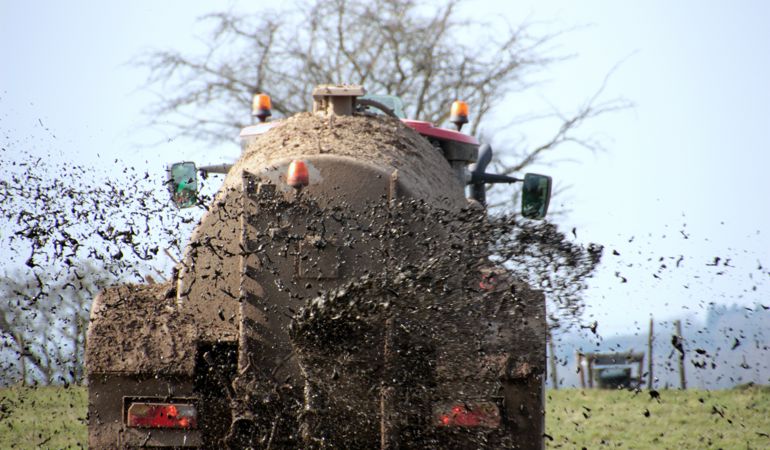Natural Resources Wales reminds farmers to avoid polluting waterways this spring

As the first signs of Spring struggle to emerge through the persistent rain, Natural Resources Wales (NRW) is reminding farmers of the rules around how, when and where they can spread nitrogen fertiliser, slurry, and other organic manures.
Spring is the time of year where the agricultural community is busy preparing the land and planting crops. The wet weather is making it difficult for farmers to get out and spread.
But NRW is urging farmers to stick to the rules as outlined in The Water Resources (Control of Agricultural Pollution (Wales) Regulations 2021 and be careful when, where and how they spread slurry and organic manures.
Irresponsible spreading can have a disastrous effect on waterways. It can strip water of oxygen, killing fish and other river life. Potentially impacting drinking water supplies causing water treatment works to close for periods to reduce the impact of agricultural pollution.
By farmers and contractors carefully adhering to the regulations, our specialist advisor in agricultural regulations, Nichola Salter, is confident pollution can be avoided.
Nichola Salter said:
“Considerable resources are deployed to investigate pollution complaints with enforcement action taken where there is sufficient evidence. However, the need for us to attend pollution incidents or enforce against farmers is preventable.
“We want to work with farmers to make sure they get the most out of the valuable nutrients in their slurry and organic manures whilst also making sure that no damage occurs to the wider environment.
“Extensive guidance is available for all farmers and contractors on where, when, and how to spread slurry safely and responsibly.
“NRW urges farmers and contractors to think about the impact on the wider environment and their community.
“We would also urge the public to be vigilant and report to us immediately if they see any signs of inappropriate slurry spreading or signs of pollution.
“We all have a role to play in keeping our water clean and healthy.”
Most farmers have a manure management plan which should include a risk map identifying where it is safe to spread livestock manures and parlour washings to avoid causing pollution and killing aquatic life.
Farmers who use contractors should ensure they are aware of the pollution risks on the farm and use safe application rates and methods.
Landspreading should only take place when ground and weather conditions are suitable. Where a farmer intends to spread, they should:
- Ensure applications comply with their written nitrogen plan
- Inspect the field to consider the risk of any organic manure, slurry or manufactured fertiliser getting into surface water
- Where there is significant risk or anything getting into surface water, considering factors such as weather and slope, farmers must not spread.
- If something does go wrong and nitrogen fertiliser, slurry or organic manures have entered stream or river, farmers and members of the community are urged to report it immediately to NRW on 0300 065 3000 or by reporting online.
The most up to date guidance for farmers can be found here: The Water Resources (Control of Agricultural Pollution) (Wales) Regulations 2021: guidance for farmers and land managers | GOV.WALES
There is extensive support and advice available for farmers via Farming Connect. Call 0345 600 0813 or visit Agricultural Pollution | Farming Connect (gov.wales).
